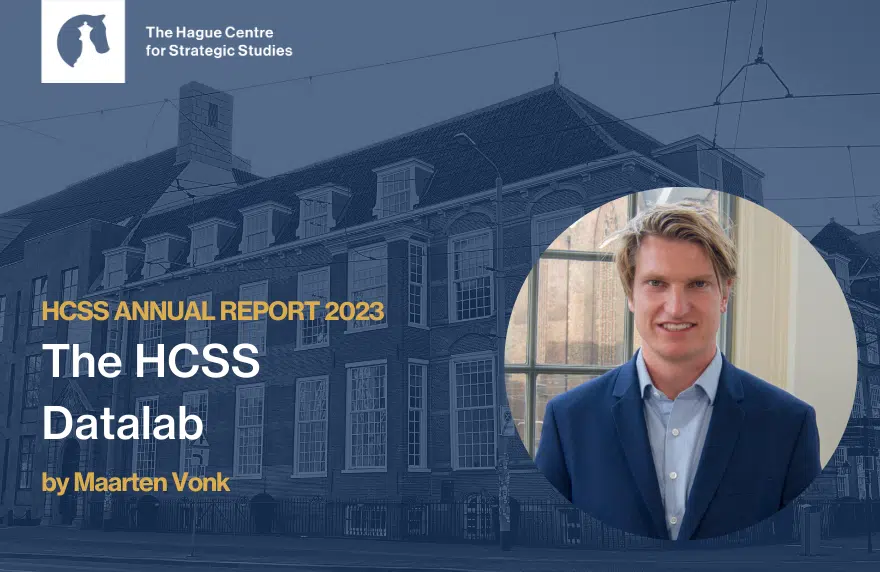With the escalating prominence of AI applications in the realms of international development and security, HCSS has actively embraced the latest AI innovations through its dedicated HCSS Datalab. The Datalab spearheads interdisciplinary research, merging the expertise of strategic analysts and subject matter experts with our data scientists.
This collaborative approach has consistently yielded insightful outcomes, serving a broad spectrum of public and private sector clients. In 2023, the HCSS Datalab achieved significant advances in both theoretical and practical aspects, particularly in the domains of Causal AI and Natural Language Processing (NLP).
While Causal AI does yet have to meet its ChatGPT moment, leading tech entities have already bombarded Causal AI to be one of the key innovations in the future of AI. The reason it has gained so much prominence is that it takes part in the so-called explainable AI wave as it contributes to the interpretability and explainability of AI models. As HCSS values explainability as one of the core elements when presenting data driven solutions to stakeholders, HCSS has jumped ahead an implemented a variety of Causal AI applications over the past years.
Causal AI is very powerful, but unlike correlation based AI, Causal AI is a very delicate research object. In 2023, HCSS made substantial contributions to the academic discussion on Causal AI, detailing the subtleties and assumptions involved in its application. Together with the Leiden Institute of Advanced Computer Science (LIACS), HCSS chief data scientists Nino Malekovic and I published an article in the Journal of Artificial Intelligence Review, which aims to disambiguate the different causal concepts that have emerged in causal inference and causal discovery from observational data by attributing them to different levels of Pearl’s Causal Hierarchy.
Furthermore, HCSS has implemented a variety of causal policy-intervention models to provide policy-makers with effective policies that mitigate the probability of conflict outbreak in vulnerable regions.
Parallel to these developments, the increasing availability of textual data sources in international security has triggered the HCSS Datalab to advance its NLP capabilities significantly. The enhanced NLP pipelines, established in 2023, enable the rapid analysis of vast text volumes, assisting strategic analysts with sophisticated topic clustering and named entity recognition.
Looking beyond the achievements of the past year, the HCSS Datalab looks forward to several exciting developments in the future. In 2024, the Datalab plans to integrate its Causal AI applications with game theory, going to unexplored technological advances that are necessary for the applications in the international security sector. Additionally, the Natural Language Processing developments are intended to grow even further by fully automating the text analysis in a range of different security applications.







